Mozambique: Government explains US$33.6 million channelled to State Budget - report
Mozambique: Minister Magala, former president Chissano attend AfDB annual meeting in Nairobi
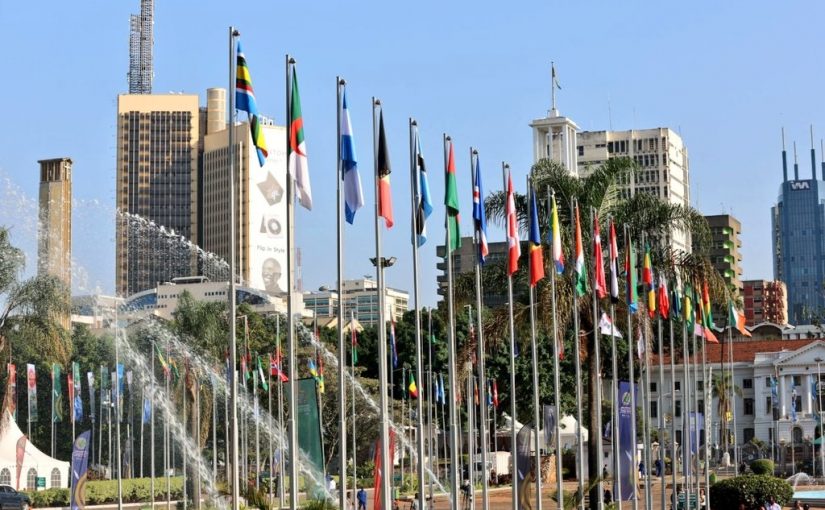
Image: @NyangePatience / X
The Minister of Transport and Communications, Mateus Magala, heads the Mozambican delegation that participates in the annual meetings of the African Development Bank (AfDB) and African Development Fund (ADF), taking place in Nairobi, Kenya, May 27th-31st.
These meetings provide an opportunity for sharing experiences on public debt management, climate financing and the high capital cost of investing in sustainable infrastructure for green growth and a fair energy transition.
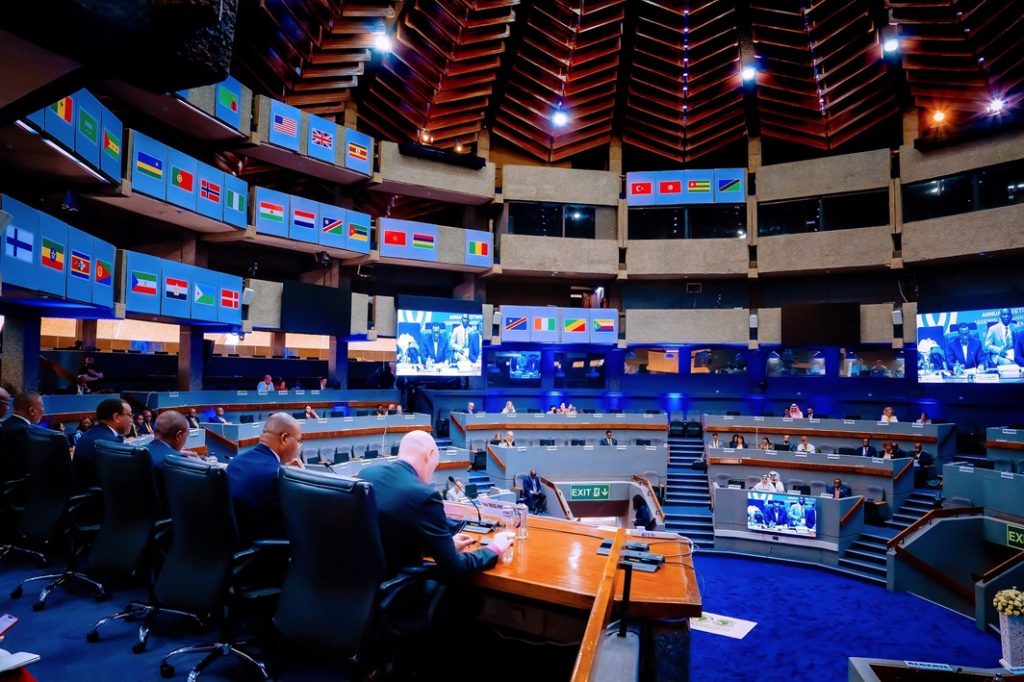
Joaquim Alberto Chissano, former President of the Republic of Mozambique, participates in the high-level Presidential Dialogue to take place on Wednesday, May 29th.
Confirmed heads of state and government and regional institutions to participate in the Presidential Dialogue:
- H.E. Mr. William Samoei Ruto, President of Republic of Kenya
- H.E. Mr. Paul Kagame, President of the Republic of Rwanda
- H.E. Mr. Faure Essozimna Gnassingbé, President of the Republic of Togo
- H.E. Mr. Emmerson Dambudzo Mnangagwa, President of the Republic of Zimbabwe
- H.E. Mr. Mohamed Younis A Menfi, President of the Presidential Council of the State of Libya
- H.E. Mr. Joseph Nyuma Boakai, Sr, President of the Republic of Liberia
- HE Mr. Joaquim Alberto Chissano, Former President of the Republic of Mozambique
- H.E. Moussa Faki Mahamat, Chairperson, African Union Commission
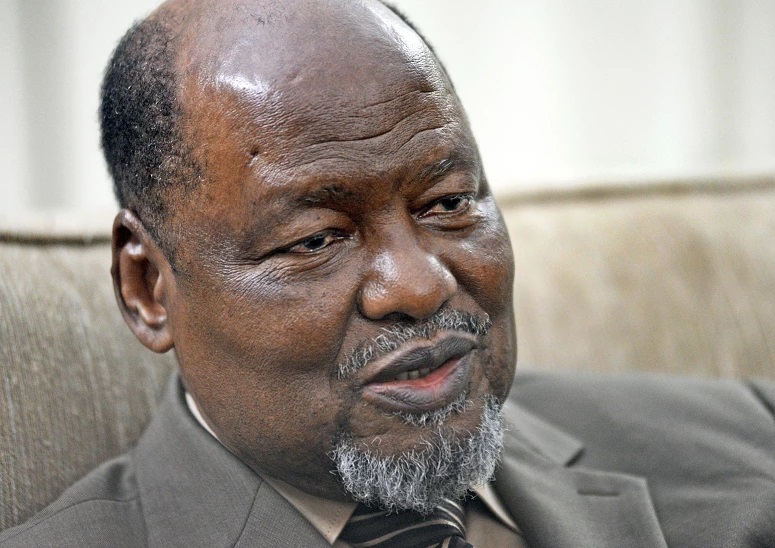
African heads of state and government and regional institutions will engage in a Presidential Dialogue on the topic: Africa’s Transformation, the African Development Bank Group, and the Reform of the Global Financial Architecture, at the Bank’s Annual Meetings in Nairobi.
They will share their experiences on Africa’s transformation, financing Africa’s transformation and present actionable strategies, policies, and interventions to fast-track transformation of their countries for the benefit of their citizens.
Financing Africa’s transformation is intimately intertwined with the need for reform of the global financial architecture. As Africa’s premier financial institution, the African Development Bank has a crucial role to play in driving the continent’s voice in these discussions.
The panel discussion will follow the opening speech by Dr Akinwumi Adesina, the president of the African Development Bank Group and a keynote address by Dr Muhammad Al Jasser, the chairman of the Islamic Development Bank
Measuring the Green Wealth of Nations: Natural Capital and Economic Productivity in Africa
Minister Mateus Magala’s intervention is expected to focus on the role of the AfDB in the global financial architecture and the mobilization of accessible, predictable and long-term financial resources.
Minister Magala will be one of the panellists in the thematic knowledge event to be held on Friday, May 31, titled: “Measuring the Green Wealth of Nations: Natural Capital and Economic Productivity in Africa”.
While Africa is endowed with significant natural capital – arable land, forests, renewable energy potential, and mineral deposits valued at about $6.2 trillion in 2018 – these resources remain largely inefficiently exploited, as countries focus more on the unrestricted extraction of low-value-added commodities for export markets, leading to cash-poor outcomes.
Also, current practices of measuring countries’ Gross Domestic Product (GDP) only account for produced capital and services traded in markets, not services offered by unproduced natural capital.
This knowledge event will serve as a platform for government officials and global experts to collaboratively devise frameworks for assessing the value of unproduced natural capital. The aim is to seamlessly integrate these assessments into countries’ Social Accounting Matrix and Gross Domestic Product.
The panel will begin with opening remarks from the president of the African Development Bank, Dr Akinwumi Adesina, followed by a keynote address from the Executive Director of the France-based International Energy Agency, Dr Fatih Birol.
Confirmed Panellists:
- Hon. Boima S. Kamara, Minister of Finance and Development Planning and Governor for Liberia
- Hon. Mr. Seedy K.M Keita, Minister of Finance and Economic Affairs and Governor for Gambia
- Hon. Dr Gibril Ibrahim Mohamed, Minister of Finance and Economic Planning and Governor for Sudan
- Mrs. Shanti Bobin, Deputy Director for European Affairs – French Treasury and Temporary Governor for France
- Mr. Fahad Hamad Al Sulaiti, Chief Executive Officer, Education Above All Foundation
- Prof. Lemma W. Senbet, William E. Mayer Chair Professor of Finance and Founding Director, Centre for Financial Policy, University of Maryland, USA
- Prof. Patrick Verkooijen, CEO, Global Centre on Adaptation
- Dr Mateus Magala, Minister for Transport and Communication, Mozambique
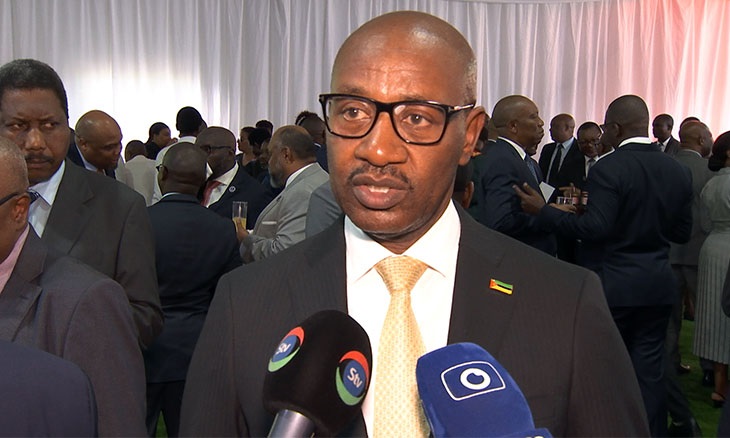
The session will be moderated by African Development Bank’s Chief Economist / Vice President, Prof. Kevin Chika Urama.
African Development Bank meets to chart a better future for the continent with reform of global financial architecture
- Channelling Special Drawing Rights through multilateral development banks enables them to potentially be leveraged by up to four times to deliver significant results.
- Africa needs $1.3 trillion annually if it is to meet its sustainable development needs by the end of this decade.
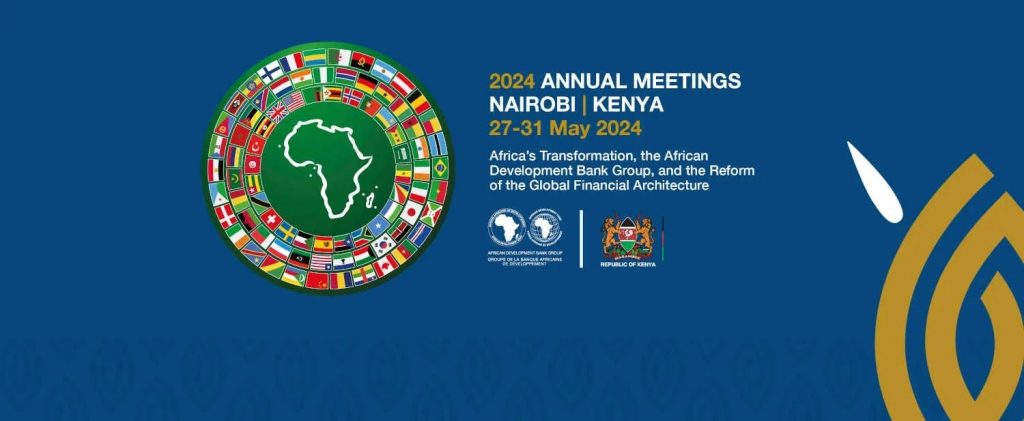
The African Development Bank Group’s Annual Meetings in Nairobi are a golden opportunity to showcase the bank’s successes as a catalyst for Africa’s transformation.
Over five days the bank’s management and governors will meet to exchange ideas and forge new relationships with a range of government and private sector partners on the road to creating a more inclusive, sustainable, and resilient Africa.
The theme of this year’s meetings – “Africa’s transformation, the African Development Bank Group and the reform of the global financial architecture” – reflects the bank’s commitment and determination to create an equitable financial world to drive sustainable development and transform the lives of more than 1.4 billion people in Africa—including almost 60% of them under the age of 25.
The African Development Bank is also celebrating its 60th birthday this year. The Nairobi meetings will be an opportunity not just to reflect with pride on the road travelled so far, but as Africa’s premier development finance institution to look to the future and play a leading role in supporting the transformation of the continent.
The Bank president Dr Akinwumi Adesina’s High 5s strategy has provided a set of innovative solutions to make significant inroads into tackling the continent’s challenges and improving daily life for people all over the continent.
The High 5s pledge to
- Light Up and Power Africa,
- Feed Africa,
- Industrialise Africa,
- Integrate Africa, and
- Improve the Quality of Life for the People of Africa.
“Across Africa, the impact of our High-5s is being felt. In the past 7 years, the operations of the Bank have impacted directly on the lives of 400 million people,” Adesina told ambassadors and heads of diplomatic missions at a luncheon in Cote D’Ivoire in February. “In that period, the African Development Bank Group has provided financing of over $44 billion in support of infrastructure, making the Bank the largest multilateral financier of infrastructure in Africa.”
The Bank’s Technologies for African Agricultural Transformation (TAAT) program is another example of an innovative, high-impact initiative that is delivering results. TAAT is a proven approach to scaling up agricultural technology across the continent. It has achieved significant successes in the production of wheat in Ethiopia and Sudan. In 2023, Ethiopia was a net exporter of wheat.
TAAT has also boosted maize production in Kenya and southern Africa. Building on the accomplishments of TAAT phases I and II, Dr Adesina recently announced plans to launch phase III of the program.
As a commitment to the future the Bank’s new Ten-Year Strategy will see investment into these High 5s areas scaled up. They will be revitalised under the banner “Ambition for 2033”.
They will also be guided by a set of key urgencies: to achieve gender equality, to invest in our youth; to respond to climate change; to build resilience to shocks and conflict; and to strengthen economic governance.
These strategies seek to build a future for Africans that is prosperous, equitable and sustainable. It envisions an Africa that is integrated and supported by the twin strategic objectives of accelerating inclusive green growth and driving prosperous and resilient economies.
The bank has certainly come a very long way since a devoted team of 10 pioneer staff members in Khartoum in Sudan were given a start-up capital base of $250 million and the mandate to “mobilise development financing for the continent”.
Today the bank has grown to more than 2,000 staff running over 1,000 active initiatives and investing in transformation in energy, health, infrastructure, technology, water and sanitation, and the entire value chain of agribusiness across the continent.
Africa needs $1.3 trillion annually if it is to meet its sustainable development needs by the end of this decade in 2030. For this to happen, Dr Adesina argues that Africa needs a more responsive, inclusive and accountable international financial system to support the acceleration of global development. This is a theme which is expected to run strongly throughout the Annual Meetings.
The Annual Meetings come at a time when African countries are showing resilience in the face of a challenging global and regional economic environment. Fifteen African countries have posted output expansions of more than 5%, and the Bank’s African Macroeconomic Performance and Outlook Report for 2024 states that Africa is projected to remain the fastest growing region in the world, after Asia, with 11 out of the 20 fastest growing economies in the world this year.
Currently Africa’s GDP is estimated at $2.5 trillion, but extensively discussed in the bank’s African Economic Outlook in 2023 this does not take into account the continent’s significant wealth in natural resource capital which is estimated at $6.2 trillion.
More than half the world’s uncultivated arable land resides in Africa, along with 20% of the world’s tropical rain forests, its fertile savannahs, woodlands, peat lands and mangroves, and beneath the surface lies Africa’s vast mineral wealth.
In addition to substantial resources of gold, Africa has 80% of the world’s platinum deposits, 77% of cobalt, 51% of manganese, 46% of diamonds, 40 % of nickel, 39% of chromium and substantial deposits of lithium to manufacture batteries and tap into the growing market for electric vehicles.
At best these natural assets are grossly under-valued, and at worst, they are largely ignored when Africa’s GDP is calculated. The Annual Meetings will consider how Africa’s vast mineral capital can be taken into consideration when calculating its wealth.
Another key topic will be the role of the Multilateral Development Banks (MDBs) as central players in efforts to transform the continent. The Bank is playing a key role in responding to the G20’s Independent Expert Group’s (IEG) call for a fundamental rethinking of the role and functions of the Multilateral Development Banks.
The IEG concluded in its report that the Multilateral Development Banks are better placed than any other institutions to respond to global and development challenges, and imposed a Triple Agenda to strengthen their impact by actioning “better, bolder and bigger” operations to transform the continent.
It seeks “better” collaboration between the Multilateral Development Banks to create multi-year strategies rather than individual programmes, while calling for “bolder” strategies and “bigger” ambitions to scale up financing. Existing projects like the Just Energy Transition Platforms linking South Africa, Indonesia, Vietnam and Senegal are a good example of what can be achieved with better collaboration.
The bank expects that creating these intercontinental projects and bringing the private sector to the centre of the Multilateral Development Banks’ operations will encourage a shift from risk avoidance to informed risk taking based on shared knowledge and best practice.
The African Union has already mandated the bank to lead this mobilisation of development finance and to fund its Agenda 2063 objective to transform Africa. Collaboration with bodies like the European Union (EU) will also widen the ability to tap into vast pools of global institutional capital and channel it towards African development projects. This will build on a relationship with the EU that has already led to more than 1 billion Euros worth of agreements across 33 projects since 2017.
The private sector also occupies a central role in this new strategy to develop Africa’s economic and social landscape. The private sector already contributes more than 15% of Africa’s GDP in gross fixed capital formation, while delivering 70% of Africa’s output across its formal and informal sectors.
A prime example is the Africa Investment Forum, an investment platform of the African Development Bank and seven development finance partners. The Africa Investment Forum’s centrepiece is its annual Market Days event, which brings together thousands of global investors, heads of development finance institutions, and business and government leaders over three days to advance investment transactions in sectors including agriculture, infrastructure, health and creative industries to closure. Since it was launched in 2018, the Africa Investment Forum has mobilised nearly $180 billion in investment interest.
The Annual Meetings in Nairobi will feature discussion of all these issues as it charts the next phase of Africa’s transformation and create the Africa- thriving, resilient and equitable, that its population deserves.
SNAPSHOTS: Day1 of #AfDBAM2024 in photos.
Join us tomorrow for more.
Visit https://t.co/8DHE1DQF4T for the full program. pic.twitter.com/y4ZyluOm49
— African Development Bank Group (@AfDB_Group) May 27, 2024
Happening in📍Nairobi, Kenya 🇰🇪 this week-
The African Development Bank Group annual meetings #AfDBAM2024 themed “#Africa’s Transformation: the African Development Bank, and the Reform of the Global Financial Architecture”#IGAD’s Executive Secretary, HE @DrWorkneh is leading… pic.twitter.com/UcIcYnfhzT
— 𝗣𝗮𝘁𝗶𝗲𝗻𝗰𝗲 𝗡𝘆𝗮𝗻𝗴𝗲 🇰🇪 (@NyangePatience) May 27, 2024
Our President @akin_adesina — a great leader for the continent, but most of all, a great dancer! #AfDBAM2024 pic.twitter.com/DDZAgkGiV2
— Nadia Hamel (@nadia_hamel) May 26, 2024


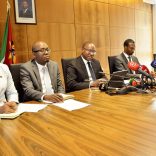
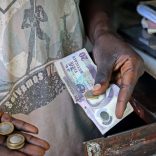
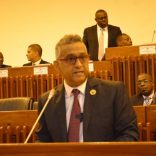

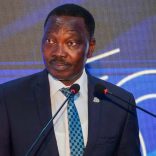




Leave a Reply
Be the First to Comment!
You must be logged in to post a comment.
You must be logged in to post a comment.